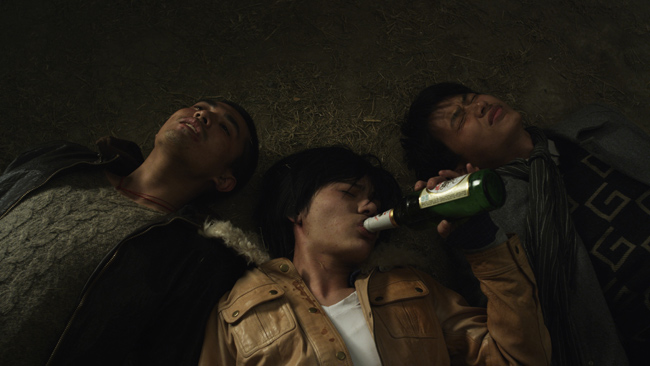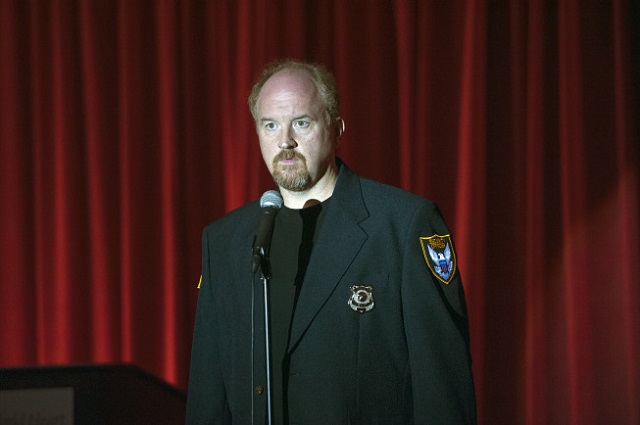 Beijing Flickers
Beijing Flickers
Written and directed by Zhang Yuan
China, 2012
Beijing Flickers is a compelling, loosely-plotted portrait of young outcasts in the titular city, each struggling to find their own place and independence in the face of escalating setbacks both personal and economic. Lead San Bao (Duan Bowen) spends much of the film mute, his first word after hundreds of days taking place in the opening sequence. Zhang Yuan’s narrative takes us back to the beginning of San Bao’s woes, which include the departure of his beloved dog, being made unemployable, and his girlfriend dumping him for a wealthy businessman.
In a drunken state one night, he eats a glass in a bar, resulting in a lacerated mouth; this bar is where You Zi (Li Xinyun) plays concerts with the local indie rock band she fronts. San Bao is temporarily hospitalised, sharing a room with Xioa Shi (Shi Shi), a transvestite dancer and poet who has just undergone plastic surgery. The final central player is San Bao’s friend Wang Ming (Lv Yulai), a young man struggling with his own relationship woes and bullying courtesy of his work colleagues; his only regular consolation is being able to drive expensive cars for even the briefest moment in his job as a parking attendant.
Much is made of the divide between rich and poor in the film, the characters’ predicaments and strife often fuelled by the treatment, overt or not, by the wealthy towards the poor, or by desperation concerning money. Wang Ming, for example, upon discovering wads of cash in a client’s car, is inclined to take a small sum of it just so that San Bao’s hospital bills can be paid for; You Zi, meanwhile, finds her progress undermined by her fame-seeking, unfaithful band mates. Struggling against an oppressively capitalist society, the characters exist in this layer between the hyper-industrialised parts of the city and the grimy bottom. This is an idea reflected in the film’s cinematography, the film favouring street-level shots at virtually all times for its outdoor scenes, and usually of backstreets at that; the one occasion where we get a full view of one of Beijing’s numerous skyscrapers is during a crane shot at the end.
Early on in the film, one character muses that without money in their pockets and without poetry in their hearts, they are totally poor. As posited by San Bao at one point, “sometimes poor people have more chances to encounter beauty” and “despair can be beautiful sometimes”, and so many of the film’s highlights concern bursts of transcendence through kinship and embracing parts of Beijing not yet changed. One drunken dance by the four characters on a road in the snow is a particularly beautiful sequence, one San Bao describes, through narration, as feeling like this one moment where it feels like the city belongs to them.
Some of the depressed San Bao’s narration is admittedly a weak point in places. Poetic statements aiming for profundity or lyricism akin to Wong Kar-Wai often come across more trite than anything, perhaps partially down to their overuse: “clouds are more dependable than reality” is one particularly egregious example. It’s also a bit corny that the dog that leaves and eventually returns, when things are starting to look up, just so happens to be named Happiness. Still, there is much moving content and beauty here amidst the grim portrayal of the capital; an enjoyable sense of optimism and camaraderie that is especially poignant. The characters may be part of a generation being forgotten, but they can still find some hope in between the cracks, amidst the city’s flickering red and gold lights.
Josh Slater-Williams
Visit the official website of the Edinburgh International Film Festival






